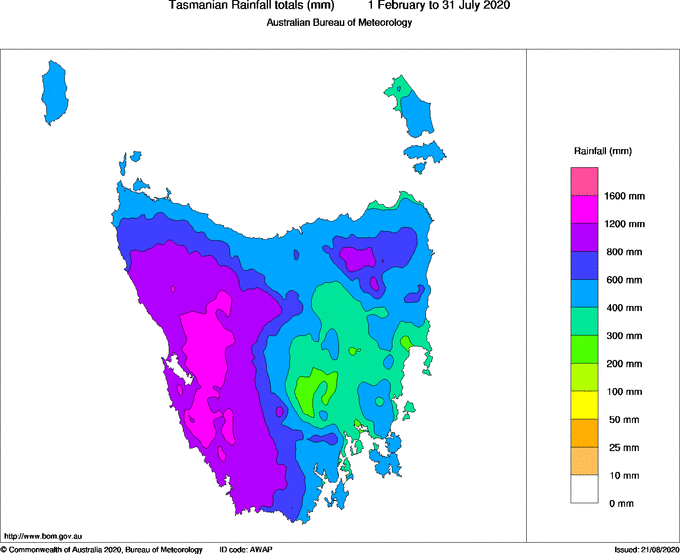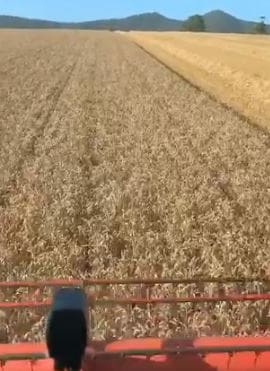TASMANIAN croppers are making heavy weather of this year’s sowing programs with unseasonally wet conditions hampering autumn/winter plantings – but it has rarely been a better time for the state’s livestock producers.
The big wet over the past few months has limited growers’ opportunities to sow winter cereals in the traditional May-July period and will likely see them turn to an increase in spring sowings if ground conditions allow.

Figure 1: Tasmanian rainfall in the six months, February 1 to July 31. (Source: Bureau of Meteorology)
Northern Tasmania farmer and Grains Research and Development Corporation southern panel member, Michael Chilvers, who farms 20 minutes south east of Launceston, said the wet conditions had been a challenge for the state’s crop producers.

Michael Chilvers. (Photo: GRDC)
“If you are a cropping farmer it is a horrendous season, if you are a livestock operator you are probably pretty happy,” he said.
“It is seriously wet. We had snow a couple of weeks ago here for the first time in living memory, then we got 45 millimetres of rain with it. It has been showery ever since and hasn’t dried up at all.
“A lot of autumn/winter crop didn’t go in because of the very wet, early autumn. There will probably be a fair bit of crop go in in spring if the ground dries out. It’s a matter of when it will dry out enough to get on it.
“There is a trend to do winter grazing either with dairy cows or sheep, then turn it into a spring barley crop. There is a move towards that. It’s a good way of dealing with things like ryegrass problems and a whole lot of other agronomic reasons.”
Challenging conditions
Tasmanian Agricultural Producers (TAP) AgriCo Stockfeeds chief executive, Tim Castle, whose Powranna-based business in the Midlands takes a significant portion of the Tasmanian cereal crop, said for graziers it had been the best autumn in 60 years and is going to be one of the best springs ever. But, from a cropping point of view, conditions have been very challenging.
“The spring crop is delayed because of rain. We have had quite a lot of rain in the last three weeks. It is a bit wet to get on the paddocks at the moment. As long as the crop is in by the end of September it will be fine. Where we get hampered is by humidity at the finish in summer, so it is hard to get late crops off,” he said.
“We had rain last spring, a high moisture summer and a shockingly wet autumn, but on the flip side, for graziers it is ‘pig in mud’ time. They are going really well. The benefit is most of the croppers are mixed farmers so whilst grain might be problematic at the moment – we still have corn that hasn’t been harvested – if you have grazing it is happy days.”
Bogged out spuds

Tasmanian cereal crops often yield 10-12 tonnes/hectare.
Michael Nichols, who farms at Sisters Creek west of Burnie, said the impact of the earlier wet conditions, particularly on the state’s potato crop, would likely see a move towards increased spring crop plantings this year.
“I reckon there might be more spring crop going in than winter crop just because a lot of paddocks were bogged exceptionally badly after potatoes. In fact, maybe 60,000 tonnes of potatoes have been lost through rot and farmers not being able to harvest them,” he said.
“Normally after a potato crop farmers go in with a cereal, whether wheat, barley or canola. But this year, people have bogged out their spuds and have had trouble getting their winter crop in. We are only a small proportion behind our normal winter crop, but it will mean there might be some more spring crop planted when the weather improves.”
Like many Tasmanian farmers, Mr Nichols grows a mix of poppies, pyrethrum, carrots, onions, potatoes, peas, buckwheat, corn, wheat, barley and canola.
Grain Central: Get our free daily cropping news straight to your inbox – Click here

HAVE YOUR SAY